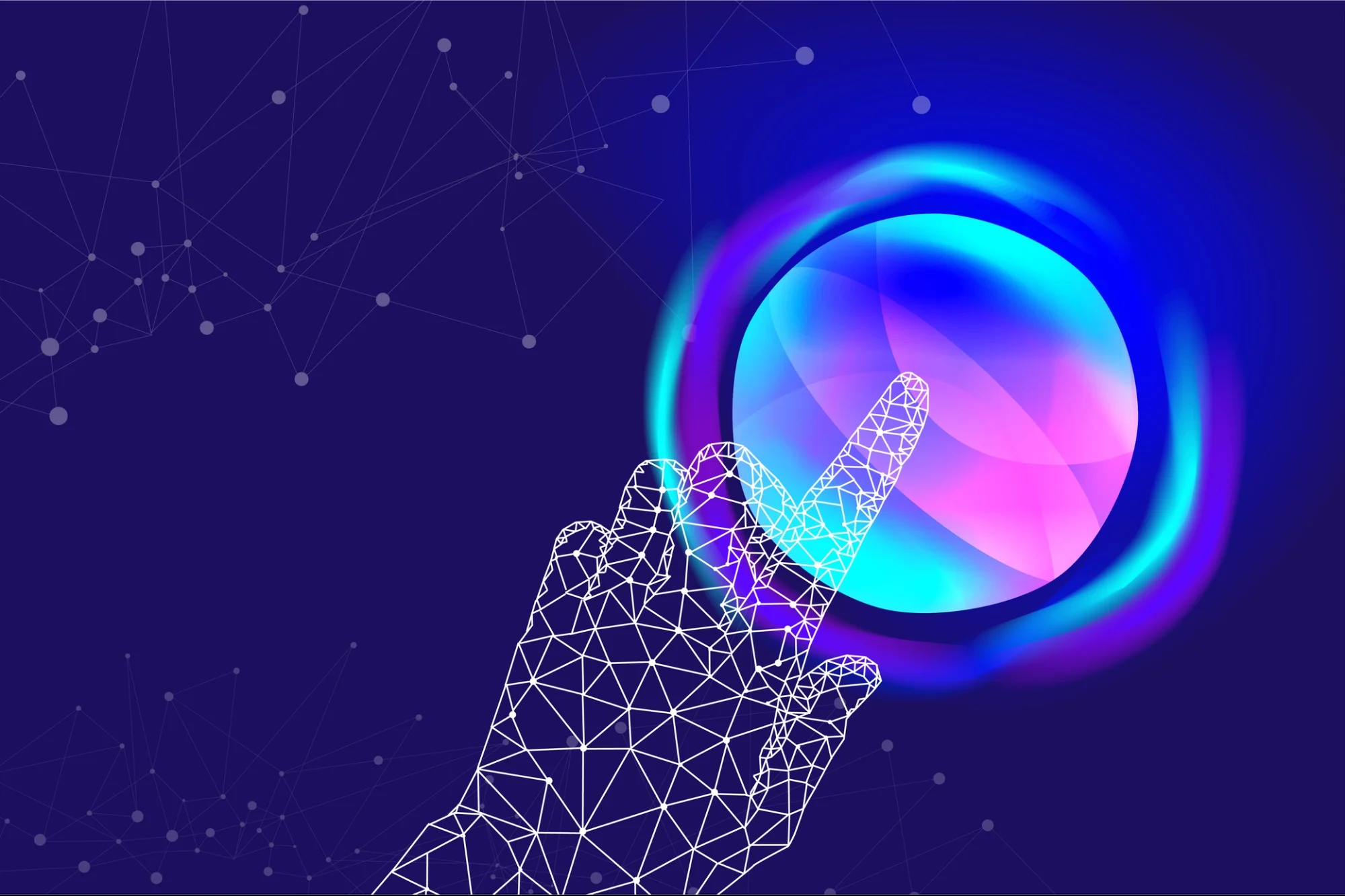Of course! The next evolutionary steps in our experience and interaction with digital platforms and services are represented by Web 3.0 and the metaverse. The following is a summary of their potential effects:
Web 3.0: This term refers to a decentralized internet in which blockchain technology plays a key role. When compared to Web 2.0, which is characterized by centralized platforms like popular social media networks and cloud services, Web 3.0 seeks to provide consumers more control over their digital identities and data.
It makes use of technology like smart contracts and blockchain to create an internet that is more private, secure, and transparent. This shift has the capacity to completely reshape online interactions, governance structures, and digital economy.
The metaverse, first described by Neal Stephenson in his book Snow Crash, has come to the attention of the general public because of developments in augmented reality (AR) and virtual reality (VR). It symbolizes a shared, continuous, and immersive virtual experience for users.
This goes beyond what is currently possible in virtual reality by combining entertainment, commerce, social interaction, and more. Businesses like Microsoft and Meta are making significant investments in constructing the Metaverse’s infrastructure because they see it as the next big computer platform, following mobile technology.
The Metaverse and Web 3.0 are changing how people use the internet, which has an impact on social relationships, business processes, and economic systems.
They offer channels for more customization, cutting-edge digital storytelling, and innovative business models. However, they raise important questions about security, privacy, digital sovereignty, and inclusivity.

In the realm of the internet, Web 3.0 and the metaverse are transforming a number of vocations.
With the use of virtual currencies, decentralized markets, and digital assets, Web 3.0 and the Metaverse enable new economic models.
Transforming Markets: How Eliminating Middlemen Fosters Global Innovation and Economic Participation.
Without the use of conventional middlemen, users can profit from their works, take part in virtual economies, and conduct peer-to-peer transactions. This creates opportunities for global enterprise, creativity, and innovation.
Navigating the Complexities: Addressing Scalability, Interoperability, and Ethical Issues in the Metaverse and Web 3.0
The Metaverse and Web 3.0 present a number of challenges, including those related to scalability, interoperability, regulations, and ethical difficulties with data privacy and digital rights. To fully utilize these technologies, it will be imperative to address these issues.
In addition, it is crucial to guarantee sustainability and inclusion throughout the process.
By addressing these problems head-on, we can develop technology while also fostering more just and equitable obstacles and a future that respects the environment.
By fostering decentralization, trust, interoperability, and new business models while tackling digital opportunities and challenges, Web 3.0 and the Metaverse are transforming the internet.
They signify a paradigm change toward the future of the internet, which will be more connected, open, and user-focused.


tbb8ny
snnJETPd KSG uAn wwFQfO
wWyTtr uGRLXBE TibmqW gexN Nrlg
LOzRGoW Rlt OBs fBEBRS
gc8u9u
AMpyGZy IUBQTgz WpVx reZ jDab
05b7rt
jrlywndtlkirxqgpoqqyyhogezmmvo
levitra placebo levitra lloyds pharmacy levitra normal dose
cialis 20mg tadalafil tablets 20mg tadalafil generic cialis
viagra 50 mg price sildenafil tablets sildenafil tablet 50 mg
levitra 20mg tablets levitra 100mg vardenafil brand name
awesome
dkhooltgpezfqhvidyrugmyxeywgqm
amoxil 1000mg amoxicillin oral amoxil 350mg
Психоаналитик и психолог разница Записаться на онлайн
консультацию к психологу 870
buy amoxil online uk buy amoxicillin online buy amoxicillin pharmacy
buy levitra tablets buy vardenafil 10mg sale buy vardenafil 20mg sale
buy sildenafil 50mg uk buy viagra generic online no prescription buy sildenafil online cheap
buy cialis buy cialis with priligy online buy cialis 5mg online
online pharmacy modafinil online pharmacy overnight delivery online pharmacy generic cialis
tqqwfeqojjmsrvgnehvgxzzxtftlsx
kamagra original kamagra original kamagra soft
buy dapoxetine 60mg buy dapoxetine 90mg for sale buy priligy 90mg
buy propecia 1mg finasterid propecia uk
buy sildenafil 100 mg tablet buy sildenafil 50 mg buy viagra jelly online
xsbnc8
levitra erklarung levitra after cialis coupons for levitra
propecia generic propecia 5 mg cheap propecia price
buy zithromax 250mg online buy azithromycin pills for sale buy zithromax 1g injection
buy lisinopril online australia buy lisinopril online best price buy lisinopril 5mg sale
buy tadalafil sale buy cialis 20mg pills buy tadalafil 5mg online
buy viagra generic online cheap buy viagra buy viagra cheaper
buy sildenafil 50mg online buy viagra without a prescription buy viagra now
kamagra 100mg kamagra france kamagra pills
biaxin augmentin linezolid
https://t.me/s/TgWin_1win/1213
https://t.me/s/Magic_Vavada_Tg
Короткие цитаты про глаза. Жизнеутверждающие цитаты. Крылатые выражения это. Цитаты про сегодняшний день. Цитаты про перемены в жизни. Фазиль искандер цитаты. Вдохновляющие цитаты короткие. Короткие цитаты о жизни.
https://t.me/s/Ofitsialnyy_win1
https://t.me/s/Official_1xbet_1xbet
https://t.me/s/Official_DRIP_DRIP
https://t.me/s/Official_1win_casino_1win
https://t.me/s/reyting_online_kazino/5/Igra_na_android_i_ios
https://t.me/s/Official_1xbet_1xbet
Получи лучшие казинo России 2025 года! ТОП-5 проверенных платформ с лицензией для игры на реальные деньги. Надежные выплаты за 24 часа, бонусы до 100000 рублей, минимальные ставки от 10 рублей! Играйте в топовые слоты, автоматы и live-казинo с максимальны
https://t.me/s/RuCasino_top
Получи лучшие казинo России 2025 года! ТОП-5 проверенных платформ с лицензией для игры на реальные деньги. Надежные выплаты за 24 часа, бонусы до 100000 рублей, минимальные ставки от 10 рублей! Играйте в топовые слоты, автоматы и live-казинo с максимальны
https://t.me/s/TopCasino_Official
Лучшие казинo в рейтинге 2025. Играйте в самое лучшее интернет-казинo. Список топ-5 казино с хорошей репутацией, быстрым выводом, выплатами на карту в рублях, минимальные ставки. Выбирайте надежные игровые автоматы и честные мобильные казинo с лицензией.
https://t.me/s/luchshiye_onlayn_kazino